Reading time is around minutes.
Performance -
Testing the performance of a drive of any type is a pain. Sure you can get repeatable numbers using a few of the more readily available testing utilities; HD Tune Pro, Sisoft’s SANDRA, and others. For our testing we decided to run HD Tune Pro along with HDTach and PCMark8’s storage tests. Between these we felt that we were able to compile a good range of information about the performance of the driver under synthetic workloads. To add to this we did a large disk to disk 30GB file transfer (moving from one SATA 3.0 SSD to the test drive and back) to get a good feel for real world read and write performance. The results are shown below in graph form as well as the actual screen shots of the results.
PCMark8 Storage Tests -
We moved from the older PCMark7 Storage tests to the newer PCMark8 after making sure there were not testing anomalies. The new tests are very similar to the older, but they appear to give a little more accurate measure of what you might expect in the real world. Our graph does not show that many devices simply because the older ones are no longer available. We will continue to build on our testing group as newer products come out.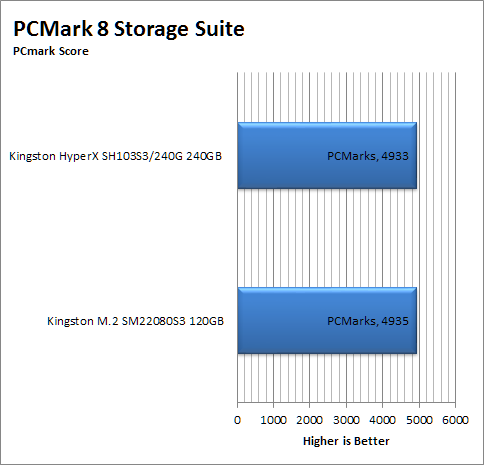
Under the PCMark8 we find the smaller (physically) M.2 drive shows some pretty good performance. Of course some of this could be due to the smaller drive size, but it is not likely that we would see this large of a gap just because of that.
HDTach -
HDTach is an older application, but it is also one that we have had good luck with. It follows the same style of testing that we find with PCMark, HDTune and even Atto Diskbench. It reads from the disk to see what the maximum, minimum and average speeds are. We shows the maximum speed in the comparison chart, but you can see more data in the screenshot below.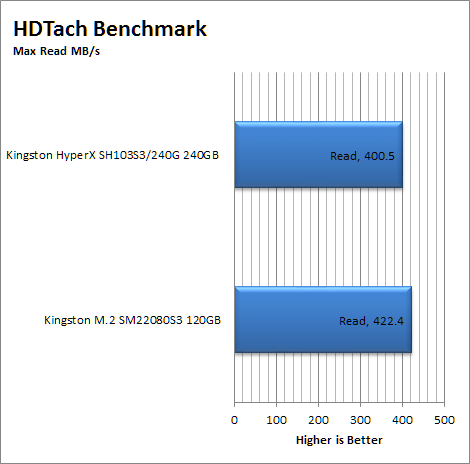
Here we see an interesting phenomenon. Remember that little NANYA DDRIII module? Well it is coming into play in this test. HDTach uses incompressible data in its read test. This makes the SM2208 seems much faster than the HyperX drive. In the real world that does mean that sequential reads of data that does not compress well (like audio) will perform much better on the SM2208 than it would on a standard SSD.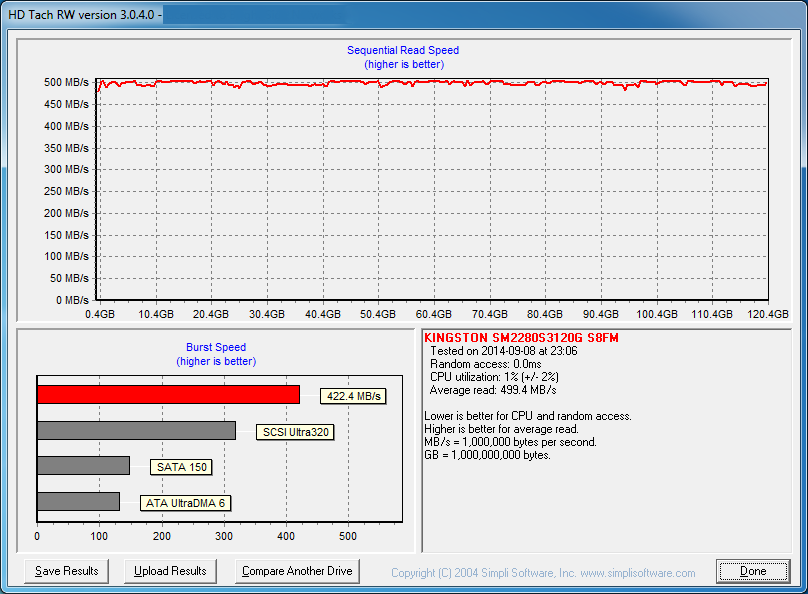
HD Tune Pro 4.6 -
HD Tune Pro is another application that can give you the run down on your HDDs it performs both read and write tests although its write test is destructive and cannot be run on a drive that contains any partition information. For our testing here we ran both the read and write tests and recorded the average transfer rates.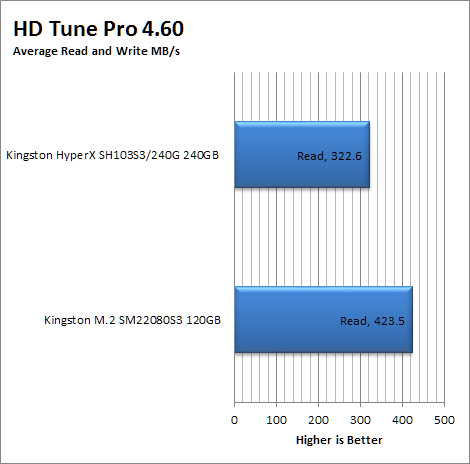
HD Tune uses incompressible data in its read test just like HDTach. This test will favor any drive with DRAM cache like the SM2208. This is why we are seeing such a delta in performance with this test, unlike PCMark8.
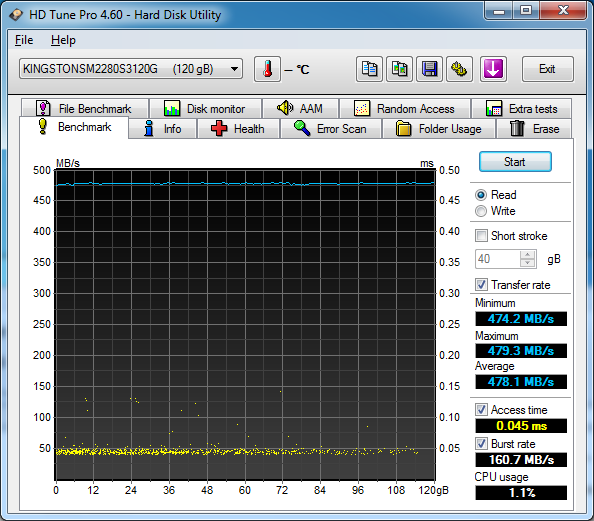 |
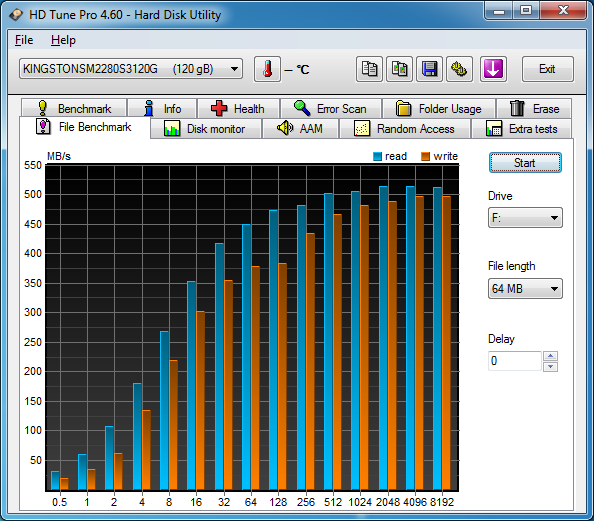 |
Sisfot SANDRA –
Sandra is a multi-function testing a diagnostic tool that we have used to test just about everything from CPUs to USB drives. For testing the SSDs we use the typical physical drive test which gives a good reading of drive performance. It also does not use non-compressible data so we should see a more normal result.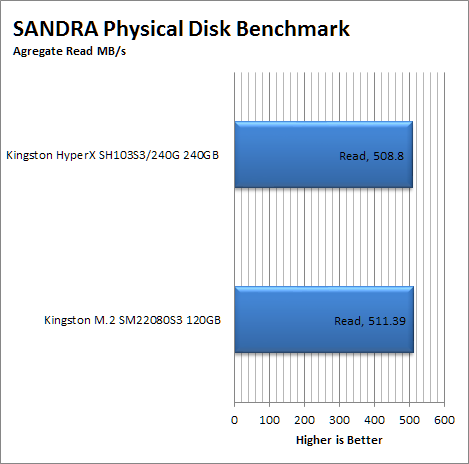
The Kingston SM2208 does a little better than our HyperX model did, but not dramatically so. It puts the two drives in about the same performance level.
Real-World file transfer -
As a final test we took two 7.4GB ISOs and moved them from the main system HDD (a Kingston SH100S3B on the SATA 3.0 Controller) to the target drive. This was timed and the max transfer time was recorded. We also took the time for some subjective testing to see how fast the drives “feel” The scores and our observations are below. For the transfer of 15GB of data from one drive to the other internally it took a little under 88 second with a high transfer rate of 359MB/s not bad at all really.
